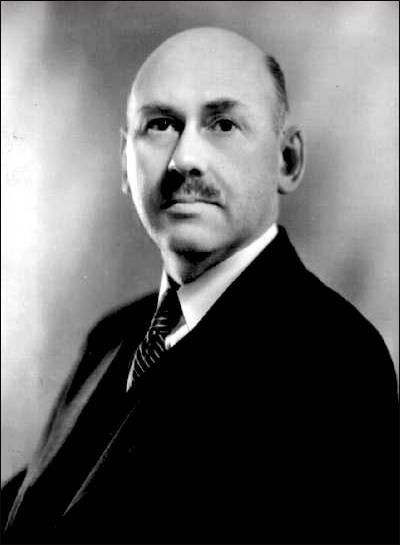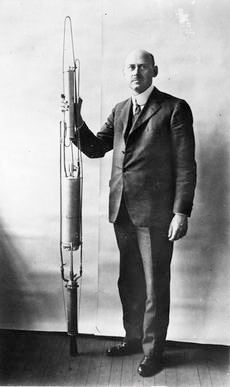 |
| Dr. Robert H. Goddard (New Mexico Museum of Space History (NASA)) |
When one envisions a hero, one may think of someone who saves lives and does good deeds on a daily basis. However, this hero had not done either of these. He is a hero because he is an inspiration. He is considered to be the father of modern rocketry. He imagined space travel as a child in the early 1900's despite struggling with illness. As an adult, he was ridiculed and even publicly humiliated by media, yet he ignored it. He continued his research, and in the end, proved them wrong. Dr. Robert Goddard is an inspiration, because after fighting illness and ridicule his entire life, he still continued his work and became known as the father of modern rocketry.
Robert Goddard was frequently absent from school as a child, and throughout high school. He struggled with several diseases, including tuberculosis. Because of this, he graduated two years later than his fellow classmates. Due to all this time spent at home, he became an avid reader, and became interested in space after reading H.G. Wells' War of the Worlds. He also once wrote about dreaming of space flight while pruning branches from a cherry tree (Marconi). Despite his consistent illness and late graduation, Goddard continued his education and the pursuit of his childhood dreams.
 |
| Dr. Goddard standing next to one of his rockets. (Smithsonian Institution Archives (Unknown)) |
After graduating high school, Goddard continued to college. He also began experimenting with rockets, and received some attention from the school for his testing. At Worcester Polytechnic Institute in Massachusetts (Marconi), Goddard worked with his rockets in the basement of the institute's physics building. Seven years later, he received two patents for his liquid-fuelled and multiple-stage rockets. The same year, he began teaching physics at Clark University, and he would soon begin to research space flight. After further theorizing and testing, he concluded that rockets could fly in a vacuum, without air. The popular belief of the time was that rocket flight in the vacuum of space was impossible, because rockets were propelled by pushing against the air. This conclusion, as well as a publication about this experiment, would later lead to controversy.
Goddard received little support and funding for his work in rocketry. The government and other organizations were not interested in his work. His only source of funding he managed to receive was a grant from the Smithsonian Institution and the Hodgkins Fund. After publishing about his findings of rockets in a vacuum, and the possibility of space travel, the media caught on. The New York Times published an article that read, "Professor Goddard does not know the relation between action and reaction. Of course he only seems to lack the knowledge that is ladled out daily in high schools." The Times did correct this after Apollo 11 (NASA), but unfortunately, this occurred 24 years after Goddard's death.
Dr. Robert Goddard was far ahead of his time. He began experimentation with rockets before the 1920's, although we did not achieve human space flight until the late 1960's. He overcame ridicule throughout his adult life and career. He battled sickness though youth, but still took time to read, and dream of rockets. He pushed through these difficulties, and so he is an inspirational hero, one that truly deserves the title "Father of Modern Rocketry."
Page created on 9/24/2014 12:00:00 AM
Last edited 9/24/2014 12:00:00 AM
